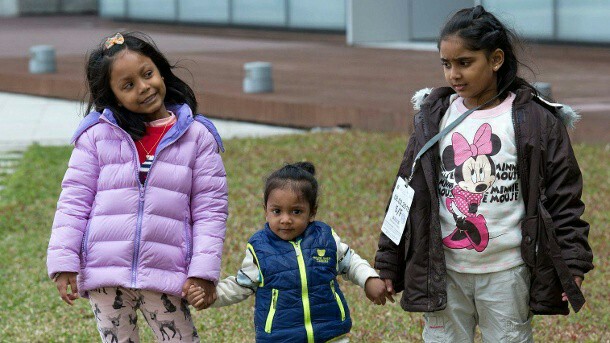Snowden went into hiding in Hong Kong when the documents were first leaked. Ajith Pushpakumara, who also sheltered Snowden, is a former soldier who was tortured by the Sri Lankan army. His experience in Sri Lanka left him with post-traumatic stress disorder, and he is now reminded of this former hell. Robert Tibbo, lawyer to Snowden and his Guardian Angels, noted that the violence in Hong Kong has “retraumatised” Ajith. “He has witnessed firsthand the police going after people, no questions asked, batons raised. He is retraumatised and in great fear, and feels that he could be arrested and treated with violence at any moment. He’s afraid to leave his home. He has experienced all of this firsthand in Sri Lanka and is now seeing it again.”“She’s aware that there’s something going on, and that it’s not safe. She seems to sense the danger and urges us to go back home on the rare occasion we go out,” said her mother, Nadeeka.
Edward Snowden and Robert Tibbo in Moscow, July 2016. Photo by N. Y. Jennifer.

He added, "They can be arrested, apprehended, formally punished and even receive rough treatment. It is difficult to say they are entirely safe if they are returned”. Reports that members of Sri Lanka’s Criminal Investigation Division visited Hong Kong in search of Snowden’s Angels have also added to their fears. Sri Lanka police has denied the reports.“It’s difficult to paint a blanket picture and generalise, but you also cannot deny that these things have happened in Sri Lanka. Where the Snowden Angels are concerned, the problem is that we don’t know what agreement the Sri Lankan government has in place with other governments. These processes are never transparent, and the public has no information."
Dinath, Sethumdi, Supun, and Keana (L-R). Photo by Marc-Andre Seguin